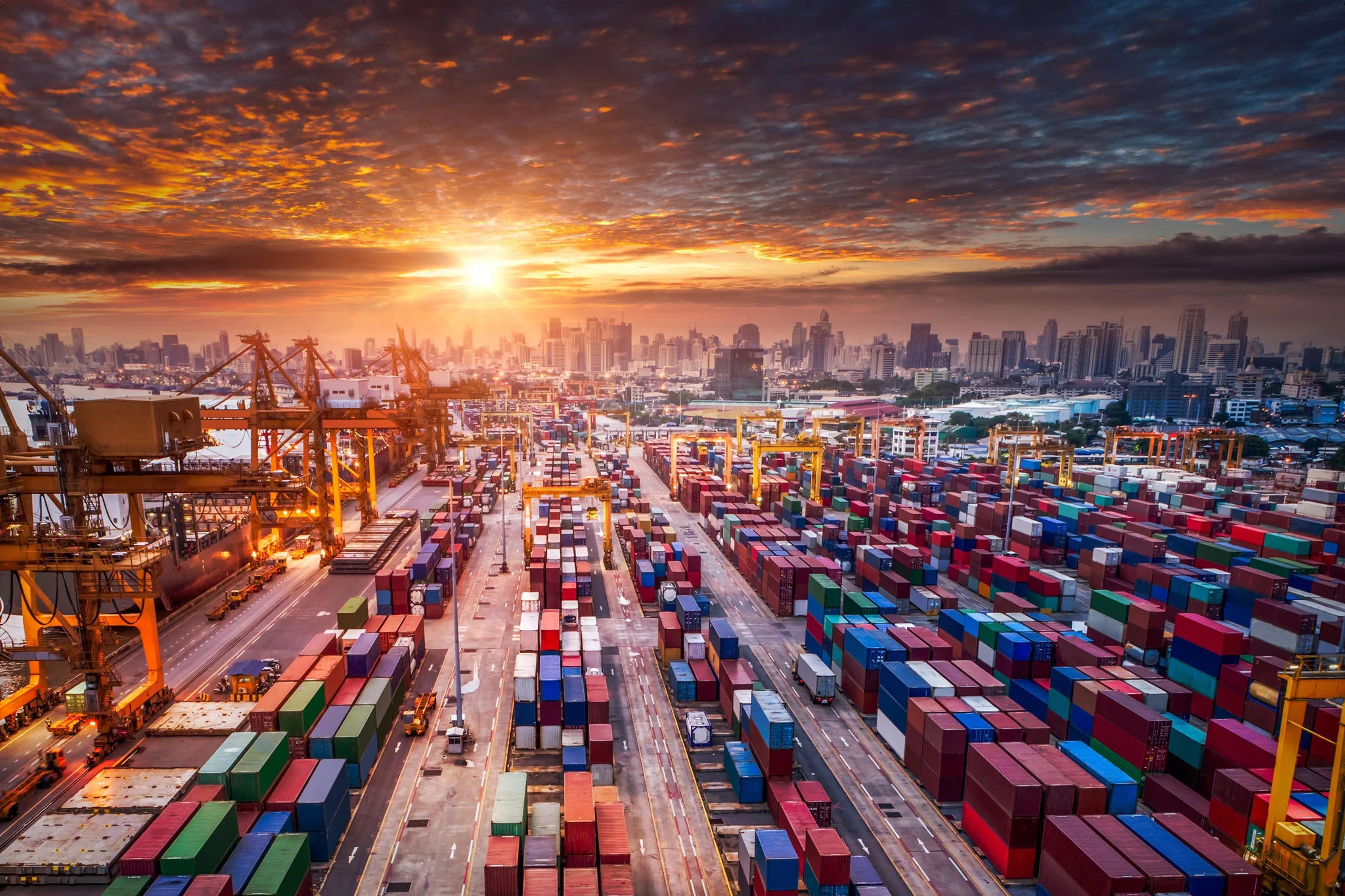The Role and Benefits of Bonded Logistics Centers in Indonesia Amid Global Uncertainty
Facing Global Challenges in an Increasingly Complex Era of Globalization
In an increasingly complex era of globalization, Indonesia is facing serious economic challenges. The projected rise in global uncertainty in 2025 presents significant risks that must be strategically managed. Geopolitical instability, increasing protectionism from developed countries, and the tightening of global monetary policy all pose real threats to Indonesia’s economy. Therefore, a crucial question must be asked: can Indonesia survive and grow amid such global uncertainty?
Despite external pressures, Indonesia’s economic fundamentals demonstrate remarkable resilience. Stable economic growth around 5%, a well-managed budget deficit, and controlled inflation all reflect the strength of the Indonesian economy. International assessments have recognized this resilience, placing Indonesia 27th out of 67 countries in the 2024 World Competitiveness Ranking. These factors illustrate Indonesia's ability to maintain economic stability amid complex global dynamics.
This article comprehensively discusses the global economic challenges of 2025, the impact of U.S. tariff policies, global supply chain disruptions, and an in-depth analysis of Indonesia’s economic resilience. It also reviews positive national economic indicators, international assessments, the strategic role of the national banking sector, and the significant contributions of Bonded Logistics Centers (PLB) in addressing these challenges.
Global Economic Challenges in 2025
Indonesia faces multiple risks due to global market fluctuations, changes in international economic policies, geopolitical tensions, and ongoing health and pandemic crises. These conditions have a direct impact on the national logistics sector, as reflected in the decline of Indonesia’s Logistics Performance Index (LPI), from 46th in 2018 to 63rd in 2023. This decline highlights the need to improve logistics efficiency and capacity through better infrastructure and responsive policies, one of which is optimizing the use of PLBs.
Geopolitical instability further heightens economic challenges by causing significant supply chain disruptions and fluctuations in global commodity prices, affecting national economic stability. In this situation, PLBs play a key role by offering high flexibility in inventory management. Companies can store goods without paying import duties or taxes until the goods are removed from the PLB, allowing more efficient and responsive stock management to international market changes.
Impact of Increased Protectionism from Developed Countries
| Aspect | Impact |
|---|---|
| Exports | Barriers to entering developed country markets |
| Investment | Decline in foreign investment interest |
| Competition | Heightened competition in the global market |
With logistics costs accounting for 22% of GDP in early 2023, PLBs become essential for enhancing logistics efficiency and Indonesia's global competitiveness.
Pressure from Tightening Global Monetary Policy
Rising global interest rates may reduce market liquidity and slow down economic growth. Under such conditions, PLBs assist businesses in managing cash flow by allowing deferred payments of taxes and duties until the goods are removed from the PLB area, supporting financial stability amid economic challenges.
Impact of U.S. Reciprocal Tariff Policy
The U.S. announcement of reciprocal tariffs in April 2025 has caused volatility in global financial markets. Indonesia is subject to a 32% tariff on exports to the U.S., which could reduce the competitiveness of Indonesian products in the American market. In this context, PLBs offer a practical solution by deferring fiscal obligations, helping companies maintain operational continuity and financial stability.
| Country | Reciprocal Tariff Rate |
|---|---|
| Cambodia | 49% |
| Laos | 48% |
| Vietnam | 46% |
| Myanmar | 44% |
| Thailand | 36% |
| Indonesia | 32% |
International Assessment of Indonesia’s Economy
Moody’s Investment Grade Rating
Moody’s, a leading international rating agency, has assigned Indonesia an investment-grade credit rating. This is a significant recognition of the country’s economic stability and potential. The rating reflects global investor confidence in Indonesia’s economic fundamentals and the government’s economic management.
| Aspect | Impact of Investment Grade Rating |
|---|---|
| Investment | Increases foreign investment attractiveness |
| Borrowing Cost | Lowers borrowing costs for government and corporates |
| Confidence | Boosts international investor trust |
| Currency | Strengthens the rupiah exchange rate |
Strong Domestic Demand
Indonesia’s economy is supported by robust domestic demand, which plays a key role in mitigating the impact of global uncertainty. Indicators of this strong domestic demand include:
-
Steady growth in household consumption
-
Increased private sector investment
-
Expansion in retail and e-commerce sectors
-
Growth in domestic market-oriented manufacturing
Credible Monetary Policy
Bank Indonesia has demonstrated credibility in executing monetary policy, contributing to economic stability. Elements of this credible policy include:
-
Effective inflation control
-
Flexible exchange rate management
-
Strong coordination between fiscal and monetary policy
-
Transparency in policy decision-making
Thanks to positive international assessments, strong domestic demand, and credible monetary policy, Indonesia is in a favorable position to face global economic challenges.
Conclusion
Despite the anticipated global economic headwinds in 2025, Indonesia displays strong resilience in confronting uncertainty. Solid economic fundamentals, stable growth, controlled inflation, and positive indicators such as the Consumer Confidence Index and Manufacturing PMI serve as proof of Indonesia’s preparedness to weather global turmoil. International credit ratings and a robust banking sector further strengthen the country’s position amid worldwide economic uncertainty.
By maintaining sound economic policies and continuing to strengthen strategic sectors, Indonesia has a great opportunity not only to endure but to grow amid global challenges. It is essential for the government, businesses, and society to work together in enhancing competitiveness and innovation, thereby maximizing the national economic potential in a constantly changing global landscape.
